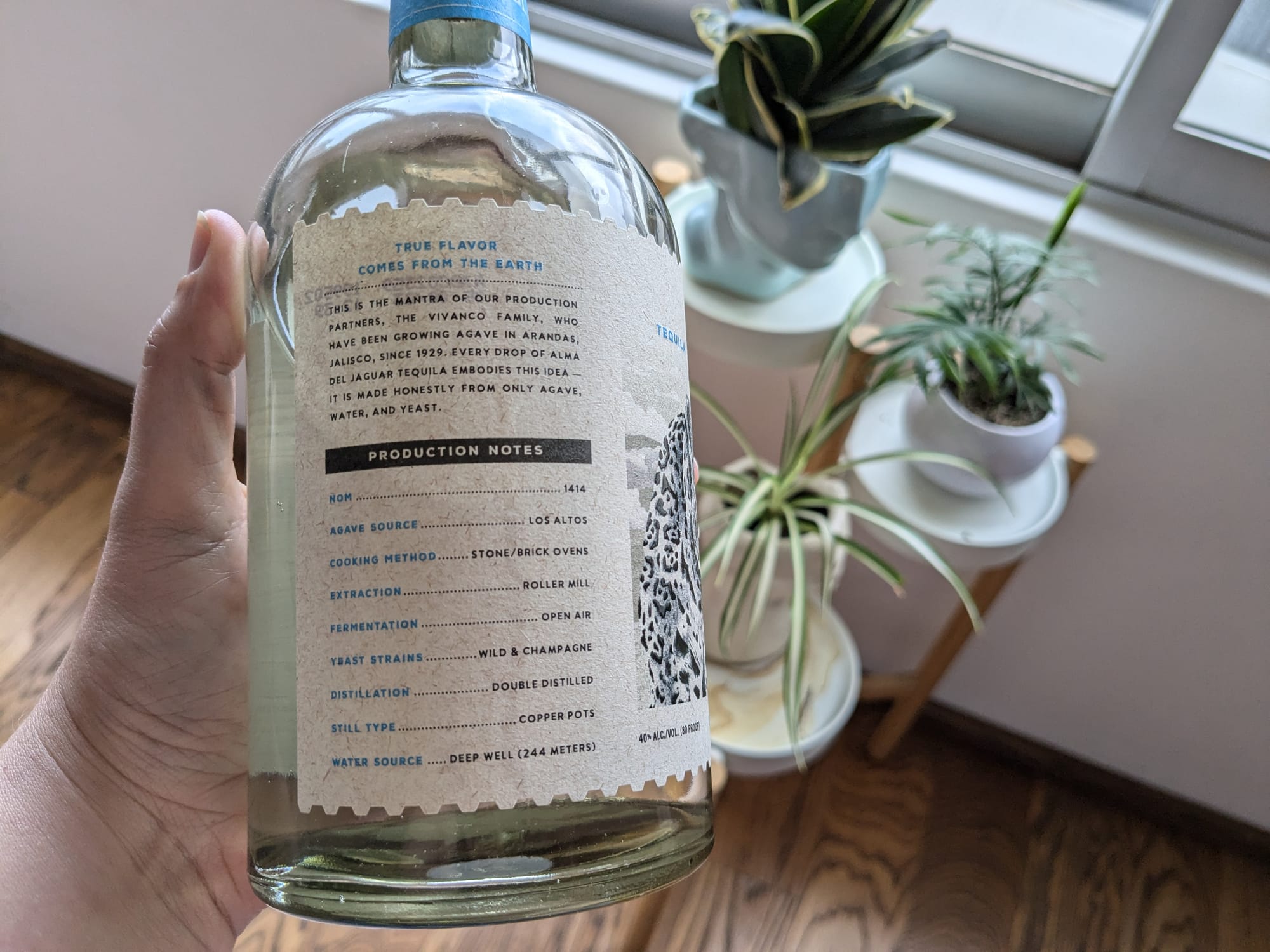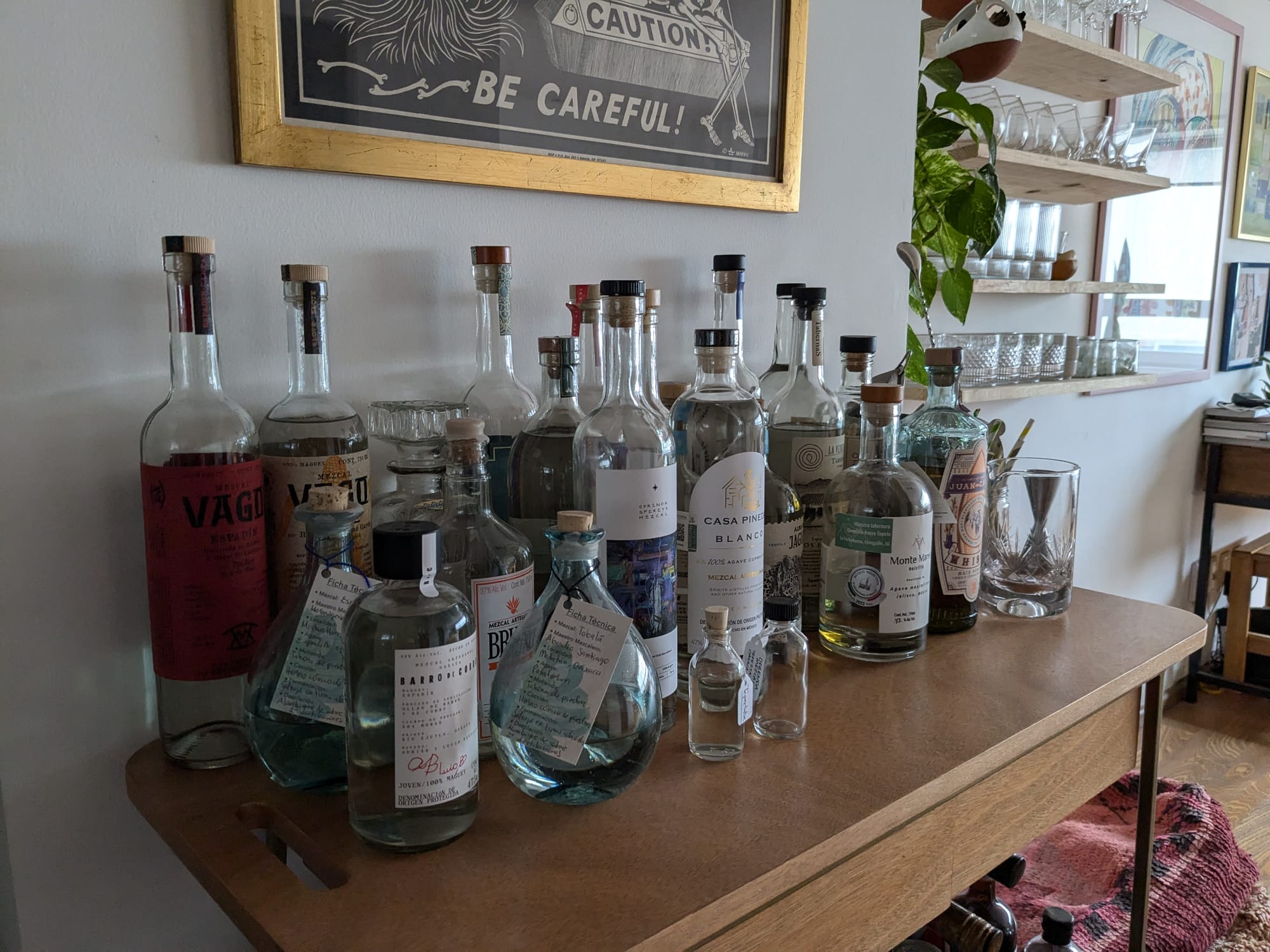Mezcal Buyer's Guide
There are hundreds of mezcals out there. Here's how to pick a good mezcal or tequila quickly and easily.

Mezcal is a fast growing category. There are literally hundreds of brands to choose from, and it's not easy to navigate all the jargon on bottles. Do you want joven or anejo? What's the difference between artisanal and ancestral? Is sotol different?
It's a lot to wade through when you're standing in the middle of the liquor store, just trying to find a decent bottle that won't break the bank.
Well, I'm here to help! But first, an important note...
We have to support good producers
Mezcal is an agricultural product unlike any other spirit. It takes 5-15 years for many agave to reach maturity and, once they are harvested, the plants don't grow back the following year like wheat, grapes, etc.
This means that producers cannot easily scale up production year-over-year, which leads to a lot of problematic practices for meeting increased demand. Deforestation, soil erosion, water pollution... and even damage to local bat and hummingbird populations. All of which have long-term side effects for the communities producing mezcal and for the agave plants themselves.
If we want to continue to enjoy a diverse lineup of agave spirits, we need to support brands who are ensuring that mezcal will continue to exist for years to come.
This is a big topic in the industry right now, and one I will likely dig more into at some point. For now, I hope you'll do your own research or just trust me!

Your Tequila Cheatsheet
- Look for "100% agave" on the bottle — Anything else is a "mixto," which means that up to 49% can be cheaper sugars.
- Check if it’s additive-free — If you're making tequila the right way, you don't need additives. But, for reasons I won't get into here, additive-free tequilas are not permitted to advertise as such. Luckily, Tequila Matchmaker maintains a list of the ~100 or so brands that fit this bill!
- Check for production details on the bottle — Few tequilas share any real details about their production at this point so it's always a good sign when they want you to know more!
- Google who owns the company 🙃 — The millions made by celebrity and conglomerate-owned brands rarely trickles back down to the people actually making it. I try to support Mexican-owned and producer-owned brands when possible.

Your Mezcal Cheatsheet
- It says ancestral or artisanal on the bottle — These are official categories of mezcal production and, while some industrial brands sneak into the artisanal category, it's a good first check. (Looking at you, Jose Cuervo AKA 400 Conejos!)
- There are production details on the back — Good producers want you to know all the work they have put into producing their mezcal so they will often include details about the fermentation and distillation right on the bottle. Even if you don't know what they mean, the fact that they have them is a good sign.
- The mezcalero is identified by name — A lot of mezcaleros have been producing mezcal for decades and are rightly proud of their work! If their name or signature is on the bottle, that's a great sign that someone put real thought into how it was made and/or that their reputation precedes them.
- It comes from a small batch — It's hard to produce quality mezcal at scale so, while producing small quantities doesn't guarantee a good mezcal, it's very likely all good mezcal comes from a small batch. All bottles are required to have a lot number on them, but bigger producers will try to obscure it on the label. I always look for a clear lot number - ideally, stamped or handwritten.
- And, now, a few suggestions based on my personal preferences:
- Joven (or “young”) bottles will be unaged and thus the most ‘pure’ expression of the terroir and production process. I only use these in my tastings and rarely buy anything else because I drink agave spirits in order to taste those things, and not the barrel it was aged in.
- Espadin is the most common agave, and something like 90% of mezcal is made in Oaxaca. If you find mezcal made from other agaves or in other states, consider giving it a try! It's likely a rarer bottle, and may have more significant taste differences than other bottles you've tried. (For example, cupreatas from Guerrero tend to be my favorite!)
Well-Made vs Your Taste
Not all well-made mezcal will be to your taste. And that's okay!
Your local liquor store, or favorite bar, likely carries a dozen or so agave spirits. My hope is that these suggestions will help you narrow that list down to a manageable handful. I encourage you to try all of them and see what you like! And then pull up that brand's website and learn a little more about who is making it and how they're making it.
You may find that you usually hate mezcal made with agave cupreata (how dare you) and love aged tequila. Learning general preferences like these will help you navigate a menu or agave aisle even when you don't recognize the brands themselves.
Before you know it, you'll be a mezcal/tequila pro! And then you too can ruin industrial tequila for all your friends. 😎
Caro's Cocktail Club
Subscribe for more boozy recommendations and travel stories.
